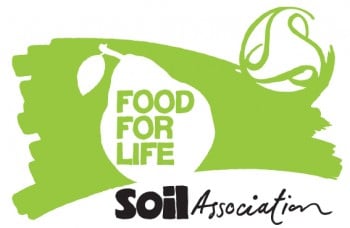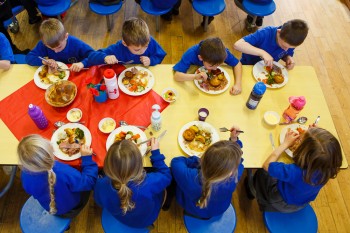Food poverty is ‘the inability to access or afford food to make up a healthy diet’. This can include quality as well as quantity of food. Food poverty is a complex issue but schools have an important role to play in ensuring that no child is distracted by hunger or poor nutrition, and that children and young people have access to a healthy diet.
Breakfast clubs
Breakfast clubs can support nutritional, social and educational outcomes. Ensure free school meal eligible children can come for free, for example by using pupil premium or other funds where appropriate. Consider finding sponsorship from local businesses or charities.
The National School Breakfast programme in England is funded by the Department for Education. In partnership with Family Action, Magic Breakfast a national charity delivers free, nutritious breakfasts to 1775 schools in disadvantaged communities across the country (where at least 50% of pupils fall within IDACI bands A-F -the most disadvantaged categories in the Government’s ‘Income Deprivation Affecting Children Index’ and where this is no existing provision or the provision has scope for improvement). Read the Year 1 progress report: Food for Thought , where the evaluation found that supporting schools to run a free of charge, universal breakfast club before school delivered an average of two months’ additional progress for pupils.
Holiday schemes
DfE and the All-Party Parliamentary Group on School Food have highlighted that school holidays can be challenging for families who rely on free school meals during term-time because of increased costs (such as food and childcare) and decreased incomes (free school meals, reduced working hours). They published a report on Filling the Holiday Hunger Gap and a guide to planning school holiday projects. If schemes charge they may not be accessed by the most disadvantaged pupils.
Schools can consider a range of solutions by working in partnership with their local community, such as youth groups, children’s centres, businesses or charities.
Evidence suggests that free holiday clubs can have a positive impact on children and young people. They work best when they are easily accessible and provide consistent enrichment activities, for more than just breakfast or lunch, and when they involve children (and parents) in food preparation.
Holiday Kitchen offers family learning, food and play opportunities during the school holidays to children in the West Midlands. The aim is to improve children’s well-being, educational outcomes and life-chances through fun activities and experiences. The evaluation report includes useful learning, on how to run a scheme that is enjoyable, non-stigmatising and adds value through educational and health activities.
Make Lunch is a national charity that partners churches with schools to open community kitchens in the holidays.
There is a list of local organisations in Devon that supply free or low cost food throughout the 2019 summer holiday.
Food banks
Food banks meet the immediate needs of people in crisis. Find out the referral route for your local provider and establish a link. Click here for a List of Food Aid Providers in Devon and Cornwall. This database was collated by Dr Andrew Williams, University of Exeter in June 2014 as part of the ‘Emergency Food Provision in the UK’ project (British Academy and Leverhulme Foundation, grant number: SG131950).
Whole-school approach to food and healthy eating

Increasing free school meal uptake
